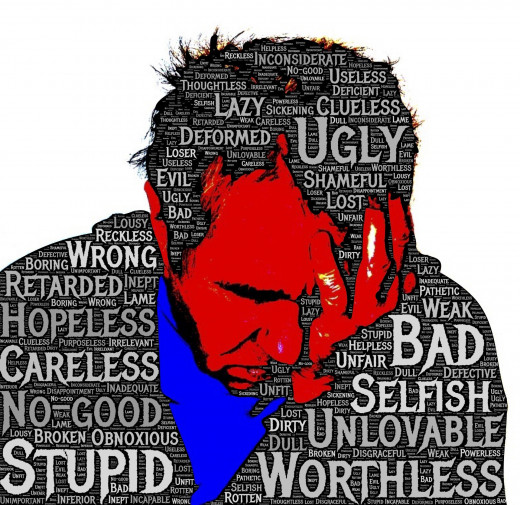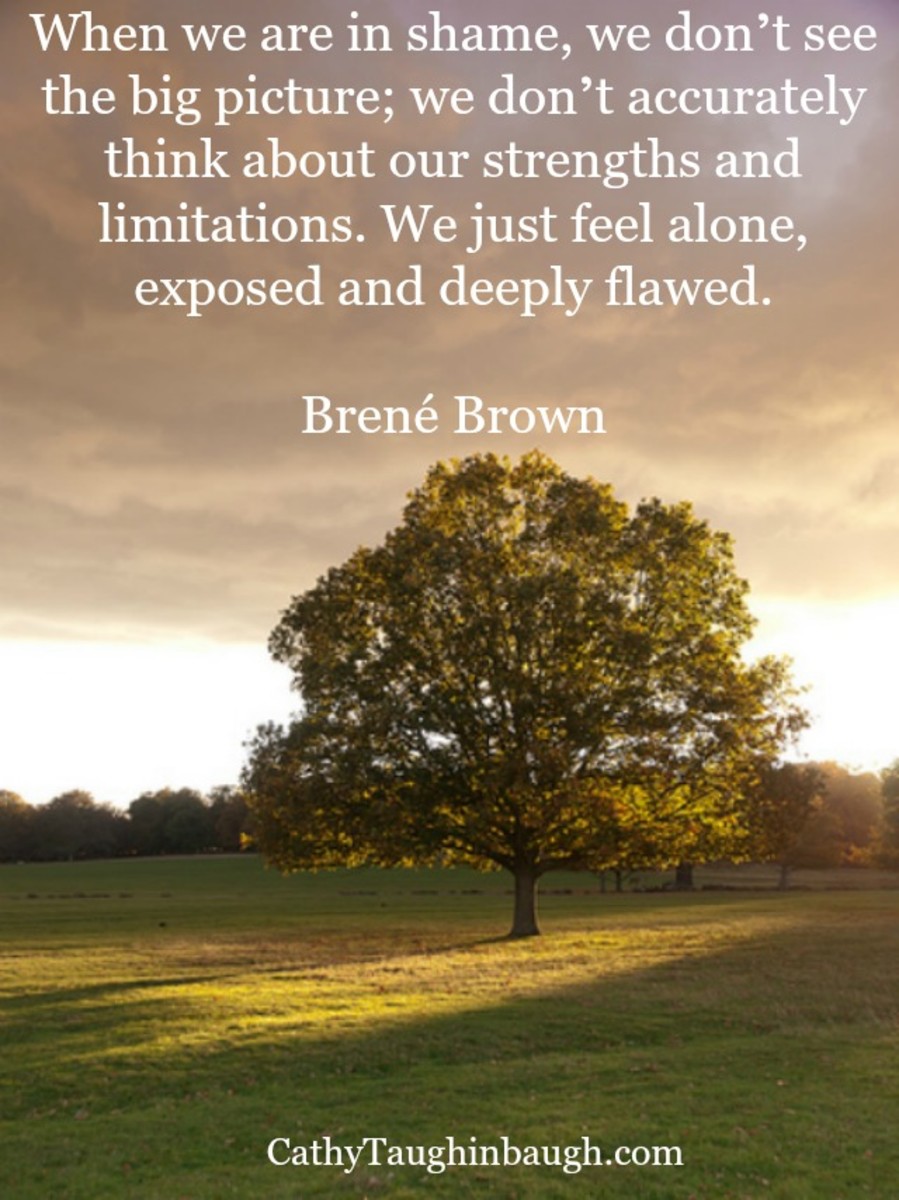Words Have Power - And Consequences
Shame Has Power - Intended And Unintended

Here's What Happens When You Hear You Should Feel Shame
I read something on social media today that made my blood boil - go figure.
In essence, the person behind the post misused the word "shame," which I believe is a word that is too often used in the first place, and after I picked my jaw up off the floor, I had the opportunity to consider why, exactly, the use of that word made me so upset.
Here I am, a 46-year-old woman, and the second I see that this person thinks shame should be called out for a particular reason where shame would not be an appropriate response, I am immediately flooded with memories from my misspent youth as the daughter of an alcoholic. I can hear the tone in my alcoholic parent's voice as he berated me for doing something that was not quite to his exacting standard. I can remember how I felt in the immediate aftermath of a trauma that I went through at a very young age, and then again when I remember telling my parents about what had happened. I can remember looking in the mirror, feeling shame for looking as I did instead of the ideal daughter that I felt like my alcoholic parent wanted.
When you have felt shame, there's nothing that will stop you from feeling that sickening pit in your stomach or stop your face from flushing. You also remember what it feels like to actually feel shame burning in your gut.
You also get angry when someone tells you anytime after that shameful event or those shameful events that you should feel shame for something else that is neither something to be ashamed of nor something where shame should ever be considered. You see, as an adult with children, I have never once said, "You should be ashamed of yourself," to my children, which is about the only context I would think the term shame might be even remotely appropriate, and even then, shame is an emotion fairly low on the list of things to feel. This is not to say my children have never made mistakes - far from it - but mistakes to the degree that they should feel shame about whatever it is they did? Not even a little.
So, when another adult suggests shame should be felt - particularly when the adult demonstrates they do not have a handle on the situation they're discussing - it really annoys me a lot.
When I saw that post on social media that I'm discussing, I considered my own anger to it, but then I wondered how many others might have felt the same thing I did? How many others would have felt outrage that the word "shame" was so casually bandied about when it definitely did not apply in this situation?
According to the dictionary, shame is "a painful feeling of humiliation or distress caused by the consciousness of wrong or foolish behavior." Theoretically, shame should be something that's not frequently felt, or at least, one would hope that it's not frequently felt. What would one do that's so serious that one should feel shame? Certainly asking for something reasonable should not engender feelings of shame, and standing up for what you believe in also should not cause you to feel shame.
It seems to me that those who suggest shame should be felt do, on some level, feel shame for their own actions or lack of action. World-renowned vulnerability and shame researcher Dr. Brené Brown commented about the abundance of shame that we feel when she said, "What we don’t need in the midst of struggle is shame for being human."
Interesting. We don't need to feel shame for being human, yet there are those that would suggest that we should feel shame by standing up for what we believe in or by supporting each other. Perhaps those who suggest we should shame those who do such things as fighting for beliefs and what's right do feel their own unique brand of shame that they haven't unpacked to deal with themselves.
Why is that, though?
It's simple, really. It's uncomfortable and leaves a cold feeling writhing deep in our stomach, telling us that we've done something we should feel shame for. It's easier to push that feeling off to other people than to cope with it ourselves.
Maybe we need to take more time to ask ourselves how to deal with that discomfort rather than trying to push it onto others.








